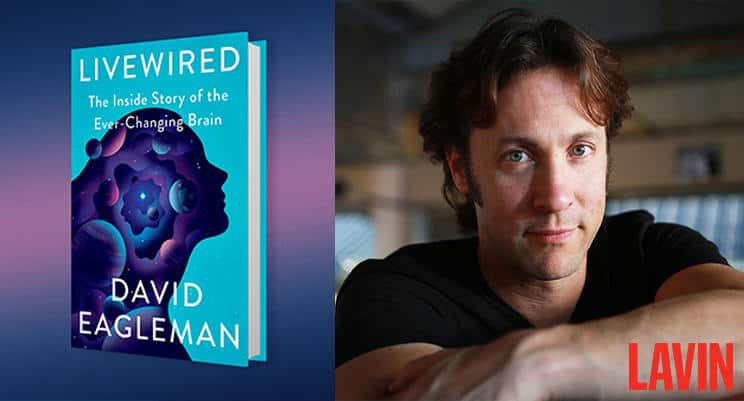On August 26th, world-renowned neuroscientist David Eagleman will join The Lavin Agency for a stimulating Q&A session discussing his latest book Livewired: The Inside Story of the Ever-Changing Brain.
How can a child function with only one half of his brain? What does drug withdrawal have to do with a broken heart? And can a blind person really learn how to see using his tongue? The answer to those questions—and many more—lie in David Eagleman’s hotly anticipated book Livewired. Combining decades of research on brain plasticity with new scientific discoveries coming from his own lab, Eagleman shatters the text-book model of the brain we’ve all been taught to reveal a system that is dynamic, interwoven, and most importantly, self-modifying.
As one of the world’s best scientific translators, Eagleman masterfully takes readers and audiences alike through the leading edge of neuroscience—and best of all—applies his insights to our own lives. Join us on Wednesday, August 26th from 1pm—2pm EST (10am—11am PST) to learn more! You’ll never think about your brain the same way again.
Register for this one-time session HERE and you’ll immediately be entered to win a copy of the book!
To book speaker David Eagleman for your next virtual event, contact The Lavin Agency, his exclusive speakers bureau.


